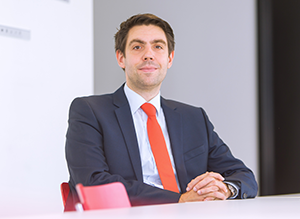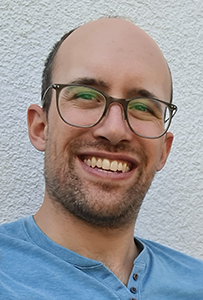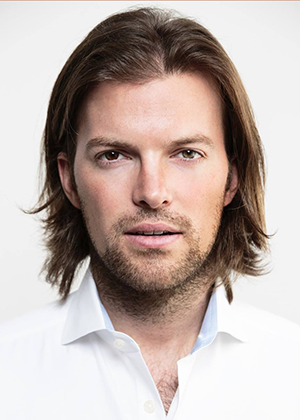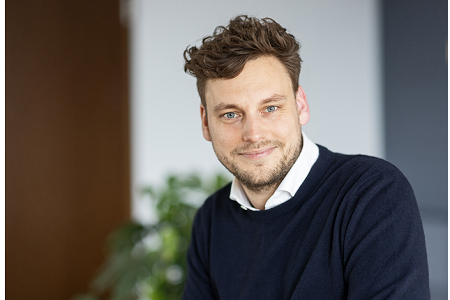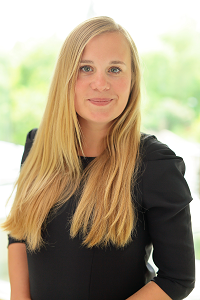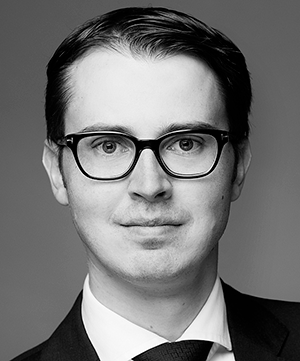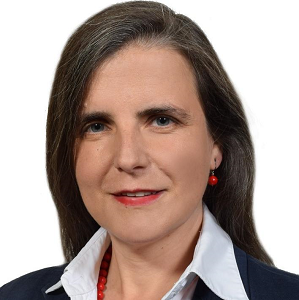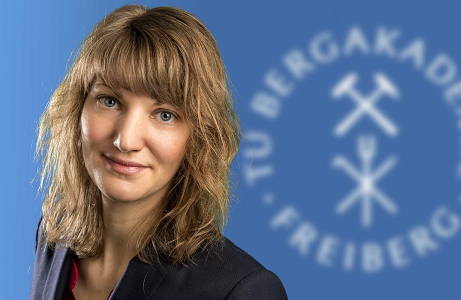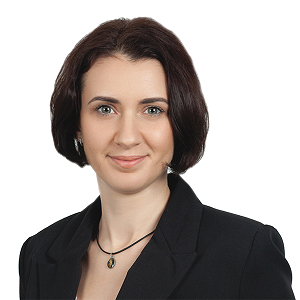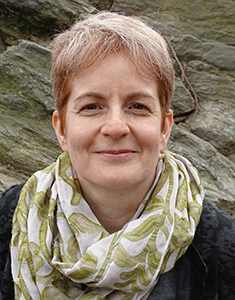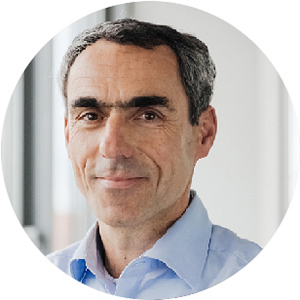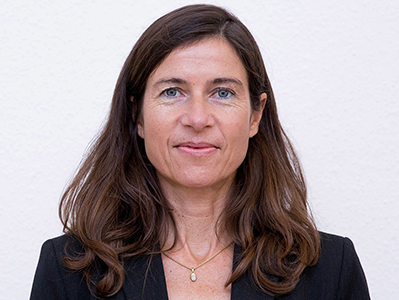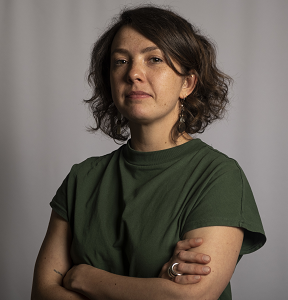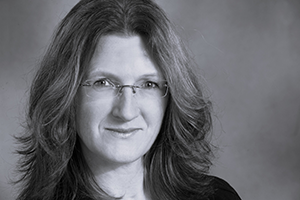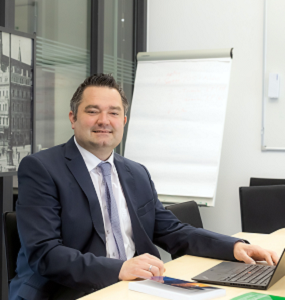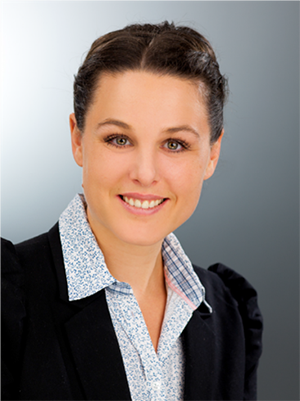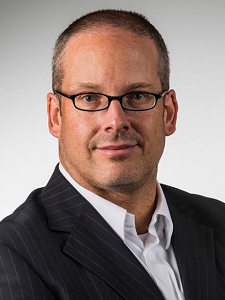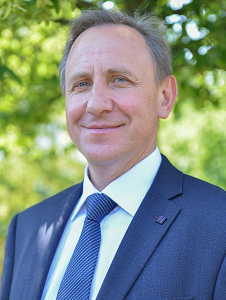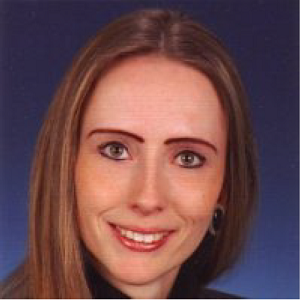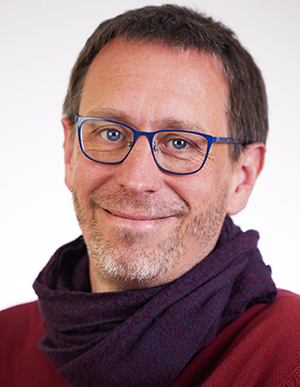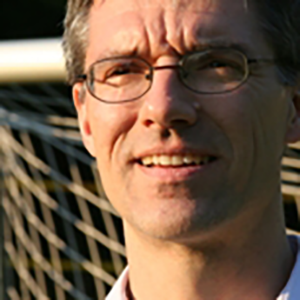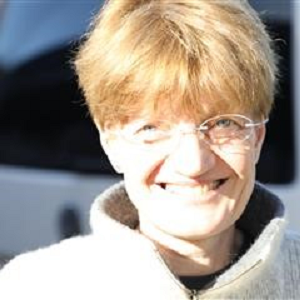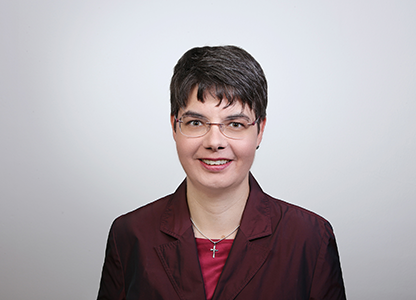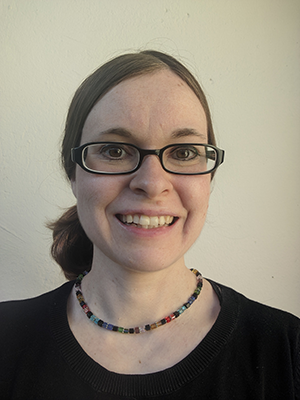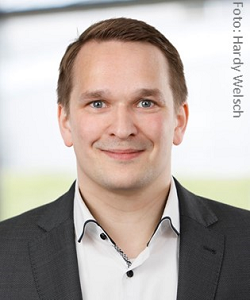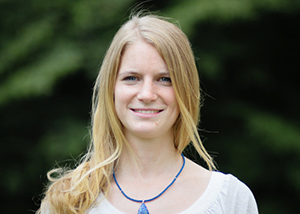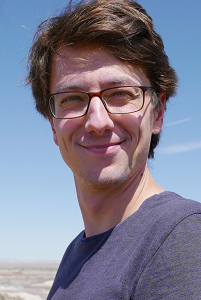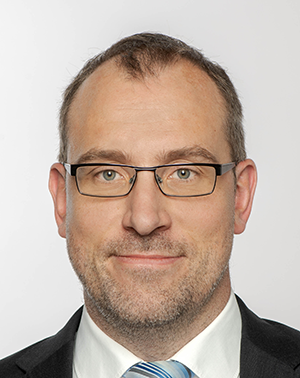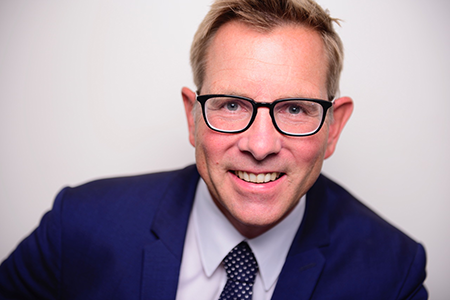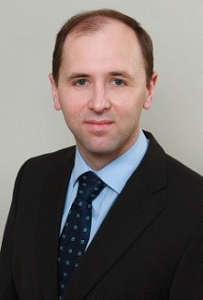Stefan Rohdewald (born 1972 in Zug, CH) was Professor for Southeast European History at the University of Giessen from 2013 to 2020 and is Professor (Chair for Eastern and South Eastern European history) with Leipzig University since 2020. He focuses on Eastern European urban history, discourses of remembrance, transconfessionality and entanglements in sport, technics and science between Eastern and Western Europe. His publications include „Vom Polocker Venedig.“ Kollektives Handeln sozialer Gruppen in einer Stadt zwischen Ost- und Mitteleuropa (2005, Open Access, Belarusian translation: "Pra Polackuju Venecyju". Kalektyŭnyja dzejanni sacyjal'nych hrup horada pamiž Uschodnjaj i Cėntral'naj Eŭropai (Sjarėdnjavečča, ranni Novy Čas, XIX st.- da 1914 h.) 2020), co-editing Sport zwischen Ost und West (with Arié Malz and Stefan Wiederkehr, 2007); Lithuania and Ruthenia. Studies of a Transcultural Communication Zone (with David Frick and Stefan Wiederkehr, 2007, Open Access); Kooperation trotz Konfrontation. Wissenschaft und Technik im Kalten Krieg. Osteuropa 10 (2009, with Klaus Gestwa et al.); Religiöse Erinnerungsorte in Ostmitteleuropa. Konstitution und Konkurrenz im nationen- und epochenübergreifenden Zugriff (with Joachim Bahlcke and Thomas Wünsch, 2013), containing essays on 101 lieux de mémoire; Das Osmanische Europa. Methoden und Perspektiven zur Frühneuzeitforschung zu Südosteuropa (with Andreas Helmedach, Markus Koller and Konrad Petrovszky, 2014). His latest monograph: Götter der Nationen. Religiöse Erinnerungsfiguren in Serbien, Bulgarien und Makedonien bis 1944 (2014, English translation: Sacralizing the Nation through Remembrance of Medieval Religious Figures in Serbia, Bulgaria and Macedonia Brill 2022). From 2017 to 2023 he is the Chairperson of the priority program Transottomanica: Eastern European-Ottoman-Persian Mobility Dynamics (SPP 1981), financed by the German Research Foundation with up to 30 projects (www.transottomanica.de). Co-edited: Transottomanica – Osteuropäisch-osmanisch-persische Mobilitätsdynamiken. Perspektiven und Forschungsstand (with Stephan Conermann and Albrecht Fuess, 2019). [Open Access: https://www.vr-elibrary.de/doi/book/10.14220/9783737008860].
Gregor Weiss is Professor of Finance at Leipzig University, as well as a Guest Professor of Economics at Keio University, Tokyo. His research covers topics such as bank regulation and supervision, systemic risk in banking and insurance, (quantitative) risk management, financial innovation and digitalization in banking, and dependence modeling with copulas. His research has been published in the Journal of Financial & Quantitative Analysis, Review of Finance, the Journal of Financial Intermediation, the Journal of Banking & Finance, the Journal of Risk and Insurance, and other journals in finance, quantitative finance, and actuarial science. Moreover, his research has attracted funding from the German Science Foundation (DFG), the Fritz Thyssen Foundation, the Mercator Foundation, Commerzbank Foundation, and the German Association for Insurance Science (DVfVW).
Dr. Rasmus Engels studied Medicine at the university of Würzburg from 2009 to 2015. He worked in a tissue engineering project in the department for trauma surgery at the University as a student. He started his career as an orthopedic surgeon 2016 at the University hospital of Mainz and right now he is working at the department for trauma surgery of the GPR hospital Rüsselsheim. He finished his medical Ph.D. this year for work over a novel implant for fractures of the heel bone.
Magnus Resch, Ph.D., is one of the world's leading art market economists. He is a bestselling book author, University Professor and serial entrepreneur. He founded Magnusclass.com, Larryslist.com and Magnus.net, the Shazam for art. Leonardo DiCaprio is an investor and advisor to the company. Magnus lectures at Yale University, published in Science Magazine, the world's leading academic journal, and has written seven books on the art market, including three bestsellers. Magnus holds a Ph.D. in economics and studied at Harvard, the London School of Economics and the University of St. Gallen. His career has been portrayed in a Harvard Business School case study and in various articles, including the New York Times, WSJ, Vanity Fair and the Financial Times.
Dr. Frankziska Reinhardt is Psychologist in the field of health care research and cancer research with a lot of interdisciplinary experience; teaching competence and therapeutic expertise, engaged in psychological care of newly arrived Ukrainian refugees, PhD in the field of migration and refugees, currently working at a research associate at the University Hospital Würzburg and a clinical psychologist at the University Hospital in Heidelberg.
Hannes Saas is a junior professor for vocational education and training at the Technical University of Kaiserslautern (Germany). He is working on the effects of the digital transformation in the context of vocational education, among other things. One of his focuses is on teaching-learning design , both in the various learning venues of vocational education and in the context of university teacher training.
Ines Eben v. Racknitz has been working at the School of History at Nanjing University since 2011, since 2016 as Associate Professor and teaches Chinese history. She studied Sinology, Religious Studies and Comparative Literature at the University of Leipzig, Renmin University in Beijing, Stanford University and the Freie Universität Berlin before receiving her PhD in History from the University of Konstanz in 2009. Further professional stations took her to the University of Erfurt, the Xian Jiaotong Liverpool University in Suzhou and again to the FU Berlin. Her research area is the history of China in the 19th and 20th centuries, which she investigates from the perspective of a global historian. Her research topics have included the events of the sacking of the Yuanming yuan in 1860, more recently she has also been concerned with Chinese cartographic history and especially the history of the Manchus at the end of the Qing period.
Univ.-Prof. Dr. Karina Sopp holds the professorship for General Business Administration, in particular Entrepreneurship and Business Taxation, at the Technical University Mining Academy (Bergakademie) Freiberg since 2019. After acquiring here PhD in 2009 at the University of Saarland and working as university assistant at the Institute of Business Administration at the University of Vienna, where she also habilitated, Sopp held various teaching positions, among others at University of Trier, Donau University Krems, FH Campus Wien and Akademie Deutscher Genossenschaften Montabaur. She also published various publications during that time. From 2015 to 2019 she worked as university lecturer at the Institute of Business Administration at the University of Vienna. Her research focus covers issues in connection with tax compliance and horizontal monitoring as well as sustainability reporting, also in overlap with tax aspects; start-ups by women - consideration of special features and support measures; use of XML/XBRL in the preparation and transmission of tax data and of annual financial statement data; questions of sales taxation with cross-border implications; effects of tax law, including tax subsidies, on the wind energy sector.
Olga’s expertise includes representing local and international clients in dispute resolution and litigation, investment and international commercial arbitration, bankruptcy, criminal proceedings and compliance. Olga has more than 15 years’ experience in highly complex litigation and arbitration proceedings in Ukraine and abroad, including in international investment and commercial arbitrations (under ICSID, UNCITRAL, LCIA, ICC, SCC, VIAC, ICAC rules), enforcement of arbitral awards in Ukraine and abroad, and cross-border litigations. Olga is efficiently handling all kinds of disputes, from straightforward claims to complex, high-value, challenging ones in a way that meets clients’ commercial objectives, whether that is to litigate aggressively or otherwise, arbitrate, or employ mediation. With domestic litigations, Olga has not only in-depth experience in commercial dispute resolution cases, but also specialist knowledge of such sectors as IT, agribusiness, pharmaceuticals, insurance, energy and banking. Olga’s practice also covers tax and compliance. Olga has conducted numerous compliance investigations of alleged/reported corrupt practices and regularly delivers anti-corruption trainings for management and compliance officers of top-ranked international businesses. Olga is a recommended lawyer in the field of International Arbitration and Litigation by Best Lawyers 2022 rankings.
Prof. Adrian is head of the Department Environmental Biotechnology at the Helmholtz Centre for Environmental Research - UFZ in Leipzig. He also holds a professorship for Geobiotechnology at Technische Universität Berlin. He obtained his doctorate (1999) and habilitation (2006) at the same university, and worked as a postdoctoral researcher at Cornell University, NY, USA (2003), as well as at the Rensselaer Polytechnic Institute, NY, USA (2007). From 2008 to 2010 he held a Guest Professorship for Applied Biochemistry at TU Berlin, he was head of an ERC group at the Department Isotope Biogeochemistry and from 2013 to 2020 he held the position of Senior Scientist at UFZ Leipzig, Department Isotope Biogeochemistry, in the working group "Functional Genomics" ("Geobiochemistry" since 2017). His current teaching areas include molecular Geobiotechnology and Environmental Biotechnology at TU Berlin and lab courses in Leipzig. Prof. Adrian has published ~110 international publications, see a list here.
Elisabeth Kaske has joined Leipzig University as professor of modern Chinese society and culture in April 2017, after studying and teaching in Berlin, Beijing, Heidelberg, Frankfurt, Boston, Vienna, Pittsburgh, Taipei, and Princeton. As a historian of late Qing and early Republican China she is interested in China’s rugged path towards modernization. Her studies include the history of German-Chinese military exchange and technology transfer, the emergence of new concepts of language and education, the sale of rank and public office by the late imperial state, and the fiscal regime of the Qing dynasty. Book publications include Bismarcks Missionäre: Deutsche Militärinstrukteure in China, 1884-1890 (2002) and The Politics of Language in Chinese Education, 1895-1919 (2008).
Prof. Dr. Rainer Alt is Professor of Application Systems in Business and Administration at the Information Systems Institute at Leipzig University, Germany. His research focuses on inter-organizational information systems and methods for designing digitalized value chains. Projects include the digitalization of the financial industry, the realization of customer-oriented services, social customer relationship management, and digital platforms. Rainer has authored numerous books as well as academic articles and is Editor-in-Chief of the academic journal Electronic Markets (EM).
Birgit Glorius is a full professor for human geography with focus on European migration research at Chemnitz University of Technology, Germany. Her research interests and majority of publications are in the fields of international migration, social geographies of rural regions and geographies of knowledge. During the last decade, she intensively worked in the area of European mobility, educational and labour migration, as well as in the field of forced migration, asylum politics, and integration. She was lead partner of the H2020 project CEASEVAL, researching European asylum politics, and is currently leading a project on the integration of refugees in small towns and rural regions in Germany, focusing on the role of the receiving society. She is frequently cited as migration and migration policy expert in German and international media and serves as head of the advisory board to the research department of the German Federal Office for Migration and Refugees. Also, she is a member of the European research network IMISCOE and the International Geographical Union. Birgits publication list comprise more than 130 books, edited volumes and journal articles.
Dr. Veronika Zhiteneva is an environmental engineer specializing in water and wastewater treatment. She obtained her BS from the University of Maryland, College Park, and her MS from at the Colorado School of Mines. In 2016 she began her doctorate work in the risk assessment of water reuse systems under the supervision of Prof. Jörg Drewes at the Technical University of Munich. Since obtaining her doctorate in 2020, she has been working as a research scientist and project manager in the Process Innovation team of the Kompetenzzentrum Wasser Berlin.
Univ.-Prof. Dr. rer.pol. Silke Hüsing holds the chair of business taxation at the faculty of economics and business administration at the Chemnitz University of Technology (Germany) since 2008. She earned her doctoral degree in business administration in 1998 on a topic of behavioral tax management at the University of Augsburg (Germany). In 2005 she finished her habilitation on a wage tax topic at the same institution. She performed a stay at the university of Rennes I (France), published in and reviewed for prestigious journals and conferences. She is organizer of the Saxonian Conference on Taxation every third year and reviewer for several accreditation agencies. She is the person in charge for several third-party projects and served the faculty and the university in the functions of vice dean, dean and as a member of the university’s board of trustees. Prof. Hüsing has been a member of the round table for economics and business administration at the German rectors’ conference. Nowadays, she is the responsible study dean for a bachelor and a master program.
Prof. Dr. Roland Happ is professor of vocational education and training with a specialization in economics at the Faculty of Economics and Management Science at Leipzig University. His research interests include modeling and measuring of economic and financial literacy among young adults. He has adapted measurement instruments on these constructs from an American to a German context. He is also involved in numerous international comparative studies (e.g. with the USA, Japan, Korea, China). In current research projects, Roland Happ is investigating the use of digital multimedia packages in teachers' training. He is also investigating the prospects of using artificial intelligence applications in vocational education.
Mr. Happ has gained extensive teaching experience in face-to-face as well as online formats. In this context, he has taught numerous courses in methodology in the area of methods in empirical educational research. Roland Happ has been a visiting professor at Hitotsubashi University in Tokyo, teaching in English on empirical educational research. In the course of the internationalization of vocational education and training, Mr. Happ offers courses at Tbilisi University (Georgia) as part of a project funded by the German Federal Ministry of Education and Research (BMBF).
Dr. Sarah Nell-Müller is a research associate at the Institute of Educational Science at Johannes Gutenberg University Mainz. In her research, she approaches digital educational contexts through the qualitative analysis of subjective learning experiences, with a focus on the construction of digital learning spaces. Previously, she completed her doctorate in the field of migration and refugee research and investigated the educational pathways of students with a refugee background.
Prof. Dr. Peter Fettke
Professor of Business Informatics at Saarland University and Principal Researcher, Research Fellow and Research Group Leader at the German Research Center for Artificial Intelligence (DFKI) in Saarbrücken
CV: Dr. Peter Fettke is Professor of Business Informatics at Saarland University and Principal Researcher, Research Fellow and Research Group Leader at the German Research Centre for Artificial Intelligence (DFKI) in Saarbrücken, Germany. In his application-oriented basic research and basic-oriented applied research, he and his research group of around 30 people address questions at the interface of the disciplines of business informatics and artificial intelligence (AI), in particular the modeling of computer-integrated systems, systems mining, process predictions, and robotic process automation. His work is among the most cited articles in leading international journals on business informatics and he is one of the top 5 most cited scientists at DFKI (more than 250 peer-reviewed publications, more than 10,000 citations, h-index 40). He is Co-Editor-in-Chief of the journal "Enterprise Modelling and Information Systems Architectures" (EMISAJ). Peter founded the DFKI-based "Center of Competence for Tax Technology" and "Competence Center for Audit Transformation". He is also a sought-after reviewer for renowned conferences, journals, and research organisations.
Dr. Oleksandr Perekhozhuk graduated from the economic department of the National Agricultural University of Ukraine in Kyiv. He studied agricultural economics at the Master Program in Sustainable Agriculture in Transition Countries at the Agricultural Department of the Martin Luther University Halle-Wittenberg (MLU), Germany. In 2007 he obtained his PhD from the MLU. The title of his PhD dissertation thesis was "Market structure and pricing on the Ukrainian market for raw milk". Since 2007 he has worked as a post-doctoral researcher in the Department Agricultural Markets at IAMO. His main research is focused on the field of industrial organization, international trade, applied econometrics, microeconomic analysis and new empirical industrial organization (NEIO).
Dr. Stephanie Finzel heads the Clinical Trials Unit Rheumatology as a Senior Attending Physician and is a lecturer at the University of Freiburg, Freiburg, Germany. Her research focus is the validation of imaging tools such as High-resolution peripheral quantitative computed tomography (HR-pQCT) and musculoskeletal ultrasound (MSUS) as outcome parameters for use in randomized controlled clinical trials (RCTs). Dr. Finzel has had extensive methodological training trough her being a member (and former fellow) of the OMERACT (Outcome Measures in Rheumatology Clinical Trials) group. She is regularly publishing on the validation and methodology of musculoskeletal imaging tools. Since 2011 she is the European co-chair of the ‘Study grouP for xtrEme-Computed Tomography in RheumAtology’ (SPECTRA)-collaboration, a consortium of researchers from rheumatology, radiology, and epidemiology that set the common goal of validating HR-pQCT as an imaging outcome tool in RCTs.
Another research focus is the characteristics and triggers of Haemochromatosis Arthropathy (HA), an arthropathy occurring in Hereditary Haemochromatosis. Dr. Finzel is a founding member of the Haemochromatosis Arthropathy Research Initiative (HARI). Furthermore, she is the co-chair of the EULAR Task Force on the ‘Development of classification criteria for haemochromatosis arthropathy’.
The creation of classification criteria for HA will set the key stone for future clinical therapeutic RCTs involving patients with HA.
Thomas Döring studied Landscape Ecology at Münster University and received a PhD in organic agriculture from Kassel University. After postdocs in insect visual physiology and behaviour at Queen Mary University London and Imperial College London, he led the crops research programme at the Organic Research Centre (UK). From 2013 to 2017 he was lecturer of agronomy at Humboldt University Berlin. He is currently leading the Agroecology and Organic Farming group at University of Bonn. His main research interests focus on crop diversification, yield stability and resilience in agroecosystems.
Prof. Dr. Michael Brach
Sport Science
Human Movement Science
University of Münster, Institute of Sport and Exercise Sciences
Vivian Carstensen obtained her doctorate and habilitation at Leibniz University of Hannover. After research stays at the Management Centre (Bradford) and London Business School in the UK, Modena University in Italy and CREST/INSEE in France, she received her professorship in 2003. Since 2007, she is professor of economics at the Faculty of Business (Bielefeld School of Business) at Bielefeld University of Applied Sciences and a member of the Center for Health, Social Affairs and Technology (CareTech OWL), where she serves as head of panel studies since 2021. Her research interests include labor markets, immigration economics, diversity, and education economics. In current research projects, Vivian Carstensen is investigating the impact of increasing digitalization in the health sector on care workers’ jobs, satisfaction and turnover. She is also putting forward transdisciplinary research to develop innovative employee-employer panel data resources. The German Academic Exchange Service (DAAD) appointed her as an expert panel member in one of its international programs.
Professor Dr. Anja Geigenmüller is full professor of marketing at Ilmenau University of Technology. She obtained her PhD from Freiberg University of Technology, Germany. She was assigned as visiting professor at Vienna University of Economics and Business Administration (2006) as well as at EGADE Monterrey Tech - ITESM, México City (2007).
Her research interests include service marketing and management, relationship marketing, and technology marketing. Her work has been published in outlets including the Journal of Service Research, Journal of Business Research, Industrial Marketing Management, and Journal of Marketing Theory and Practice. Professor Geigenmüller teaches courses, among others, on business-to-business marketing, service marketing, and technology marketing. Currently, she is serving as Vice President Teaching and Learning of TU Ilmenau.
Prof. Melanie Krause, Ph.D., is currently a visiting professor of sustainable city development and real estate at Leipzig University. She has been a junior professor of economics at Hamburg University since 2015, focusing on regional inequality, growth and development. Before obtaining a Ph.D. in economics from Goethe-University Frankfurt in 2014, she studied economics and business studies in Bonn, London, Madrid and Paris.
Philipp Brüggemann
Doctoral Researcher
University of Hagen
CV: Philipp Brüggemann studied Business Administration in Münster at one of the most renowned german universities for business studies and successfully completed his Bachelor of Science in 2012. He extended his knowledge in marketing with a Master of Science at the University of Kiel in 2015. During his studies, Philipp Brüggemann assisted in research projects at the Chair of Technology Management at University of Kiel. After his graduation, Philipp Brüggemann held a leading position in a non-profit organization in the field of controlling and finance.
Since 2018 he is a doctoral candidate of Prof. Dr. Rainer Olbrich at the Chair of Marketing at University of Hagen. In addition to his doctoral thesis on the ‘Decomposition of Market Shares’, Philipp Brüggemann is working on further research projects, e.g. on online grocery shopping, digital voice assistants, augmented reality, and customer churn rates in freemium business models.
LinkedIn: https://bit.ly/3wmjdki
ResearchGate: https://bit.ly/3EpHVV0
Dr. Daniel Reiche
Joint Lab Integrated Quantum Sensors
Humboldt-Universität zu Berlin
Institute of Physics
CV: Dr. Daniel Reiche studied physics in Jena and Berlin and conducted research for his master thesis at the Los Alamos National Laboratory. He then worked at the Max Born Institute and as a Fulbright scholar at the University of Maryland, College Park, and the Northern Arizona University. In 2021 he obtained his doctorate in theoretical physics from the Humboldt-Universität zu Berlin, where he is currently working as a post-doc on the miniaturization of quantum sensors.
Prof. Dr. Manuel Förster is Professor of Business and Econcomics Education at the School of Social Sciences and Technology of theTechnical University of Munich. More information: https://www.edu.sot.tum.de/en/wipaed/team/prof-dr-manuel-foerster/
Prof. Dr. Gunther Schnabl
Economic Policy and International Economics
Professor
Leipzig University
CV: Gunther Schnabl is Professor of Economic Policy and International Economics at Leipzig University. He is a Senior Fellow at the Flossbach von Storch Research Institute. Gunther Schnabl received his PhD from Tübingen University. He has been a visiting scholar at Stanford University, Tokyo University and Catholic University Leuven as well as at numerous central banks including the Deutsche Bundesbank and the Federal Reserve Bank of New York. Before becoming a professor at Leipzig University, he was an advisor at the European Central Bank. His research focus is on monetary policy, exchange rates and the Japanese economy. He has published in numerous international refereed journals. According to the economist ranking of Frankfurter Allgemeine Zeitung he is one of Germany's most influential economists. His most recent book on "Japans Banken in der Krise" illustrates the economic and social consequences of 30 years of low interest rate policy in Japan.
Mauricio Hunsche (agronomist, Ph.D. in Agricultural Sciences) is associate professor at the institute of Horticultural Sciences, University of Bonn, Germany (http://www.gartenbauwissenschaft.uni-bonn.de/people/ ). He has broad experience in basic and applied agronomy sciences, and published several scientific papers on the topics ‘Stress physiology of plants’ and ‘Quality attributes of horticultural crops and products’ (https://www.researchgate.net/profile/Mauricio-Hunsche ). He currently coordinates a number of research initiatives for the private industry on the topics ‘Fertilizers, Crops and Environment’ and ‘Biostimulants against abiotic stresses in agricultural crops’.


